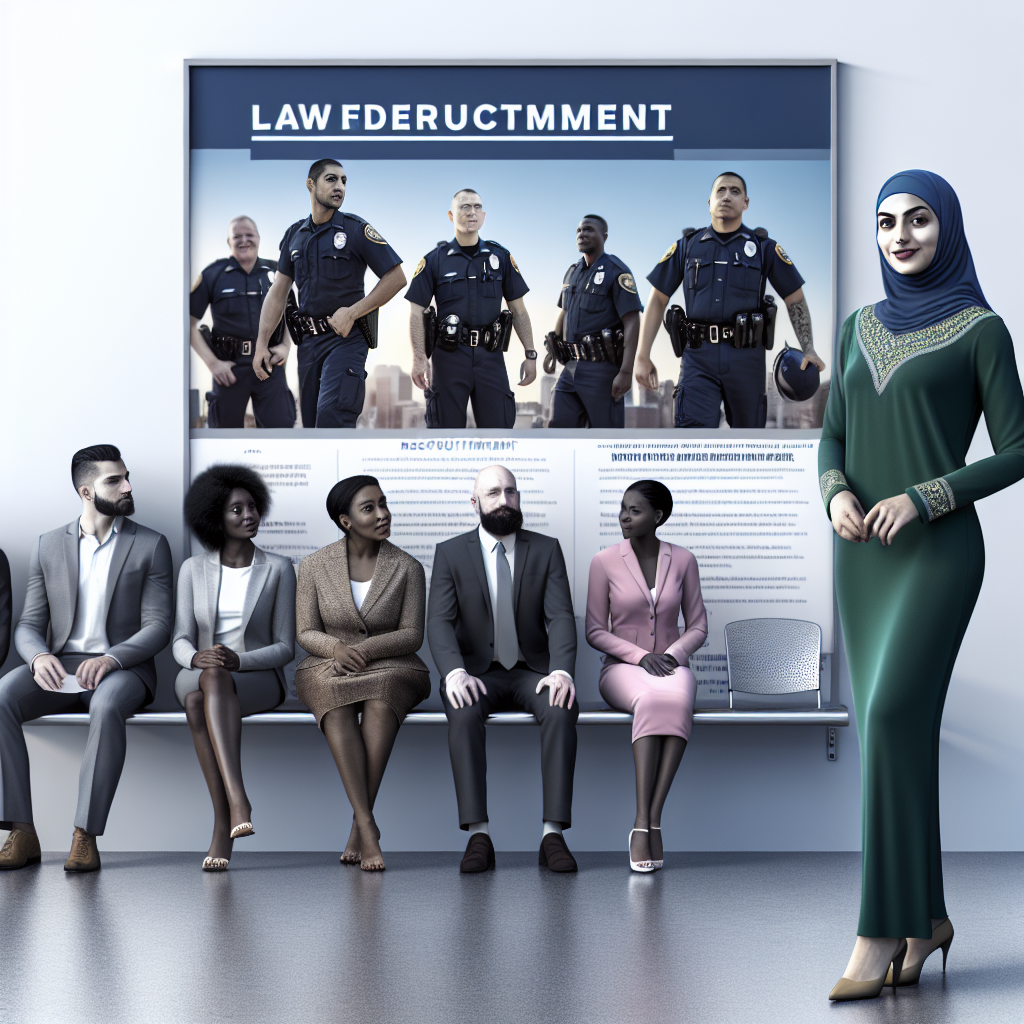🔵 Progressive Analysis
SCOOP: Trump expands DC crime task force with hiring push of nationwide law enforcement
🤖 AI-Generated Illustration by Mobile Digest
The Trump administration's decision to expand the D.C. Task Force through a nationwide recruitment drive has sparked concerns among social justice advocates and community leaders. The move, which aims to bolster the crime unit's ranks to over 2,000 members by offering federal benefits to joining off...
The Trump administration's decision to expand the D.C. Task Force through a nationwide recruitment drive has sparked concerns among social justice advocates and community leaders. The move, which aims to bolster the crime unit's ranks to over 2,000 members by offering federal benefits to joining officers, has been criticized as a further step towards the militarization of law enforcement and a failure to address the root causes of crime.
Critics argue that the expansion of the task force fails to tackle the systemic issues that contribute to crime, such as poverty, lack of access to education and healthcare, and racial inequalities. Instead, the focus on increasing the number of officers on the streets is seen as a superficial solution that may exacerbate tensions between law enforcement and marginalized communities.
Furthermore, the recruitment drive raises questions about the accountability and oversight of the task force. With officers being drawn from across the country, there are concerns about the potential for inconsistent training and the lack of local community ties, which could lead to a disconnect between the task force and the people they are meant to serve.
Environmental activists have also pointed out the carbon footprint associated with the expansion of the task force, as officers from across the nation will be required to travel to D.C., contributing to increased emissions and air pollution.
Advocates for social justice and police reform are calling for a more holistic approach to addressing crime in the nation's capital, one that prioritizes investment in communities, education, mental health services, and job creation. They argue that only by addressing the root causes of crime and working to dismantle systemic inequalities can true progress be made in creating a safer and more just society for all.
As the debate surrounding the expansion of the D.C. Task Force continues, it is clear that the Trump administration's approach to crime prevention is being met with significant criticism from those who believe that lasting change requires a fundamental shift in priorities and a commitment to addressing the underlying social, economic, and racial inequities that contribute to criminal activity.
Critics argue that the expansion of the task force fails to tackle the systemic issues that contribute to crime, such as poverty, lack of access to education and healthcare, and racial inequalities. Instead, the focus on increasing the number of officers on the streets is seen as a superficial solution that may exacerbate tensions between law enforcement and marginalized communities.
Furthermore, the recruitment drive raises questions about the accountability and oversight of the task force. With officers being drawn from across the country, there are concerns about the potential for inconsistent training and the lack of local community ties, which could lead to a disconnect between the task force and the people they are meant to serve.
Environmental activists have also pointed out the carbon footprint associated with the expansion of the task force, as officers from across the nation will be required to travel to D.C., contributing to increased emissions and air pollution.
Advocates for social justice and police reform are calling for a more holistic approach to addressing crime in the nation's capital, one that prioritizes investment in communities, education, mental health services, and job creation. They argue that only by addressing the root causes of crime and working to dismantle systemic inequalities can true progress be made in creating a safer and more just society for all.
As the debate surrounding the expansion of the D.C. Task Force continues, it is clear that the Trump administration's approach to crime prevention is being met with significant criticism from those who believe that lasting change requires a fundamental shift in priorities and a commitment to addressing the underlying social, economic, and racial inequities that contribute to criminal activity.
